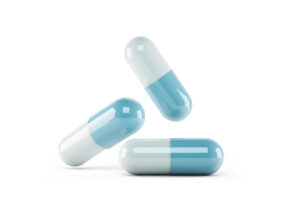According to the news article “マスタープロトコル試験、年度内にGL案策定へ AMED研究班、「国内環境整備しないとラグ・ロス広がる」 | 日刊薬業 – 医薬品産業の総合情報サイト (jiho.jp)” released by THE NIKKAN YAKUGYO on 11/Oct/2023, a research team of the Japan Agency for Medical Research and Development (AMED) has initiated research aimed at creating guidelines for “Master Protocol Trials”. Drug development has been advancing in Europe and the United States through the utilization of this trial method, yet Japan currently lacks well-defined guidelines in this regard. The lead researcher, Professor Akihiro Hirakawa of Tokyo Medical and Dental University, emphasizes the need for Japan to adapt, cautioning against heightened risks of drug loss in the absence of the required infrastructure. “Master Protocol Trials” is a novel clinical trial method that efficiently evaluates multiple diseases and treatments, and is primarily classified into three categories: “Basket Trials”, “Umbrella Trials”, and “Platform Trials”. Especially in Europe and the US, this approach has been used to develop anti-cancer drugs and treatments for COVID-19. In Japan, efforts are in progress with initiatives led by the National Cancer Center Hospital and the National Center for Global Health and Medicine. The US FDA has already issued guidance for “Master Protocol Trials” in COVID-19 and oncology fields. However, no such detailed guidelines exist in Japan yet. Professor Hirakawa expresses a growing concern that global sponsors might be reluctant to incorporate Japan in their global development plans if clear guidelines and specified considerations for leveraging these trials continue to be absent. This became signifying an urgent call for Japan to formulate similar policies. AMED’s research, slated until the fiscal year 2025, aims to collaborate with related organizations and experts to examine regulatory, statistical, and practical issues of “Master Protocol Trials”. Its goals include establishing guidelines, developing trial designs, and proposing trial operation models. After finalizing the guidelines, the next action will be to collaborate with the Ministry of Health, Labour and Welfare and the Pharmaceuticals and Medical Devices Agency (PMDA) to establish the final procedures.
2023年 10月 の投稿一覧
Chinese Pharmaceutical Innovation Gaining Presence in Japan
According to the news “中国製薬、日本でもじわり存在感 | AnswersNews (ten-navi.com)” released by AnswersNews on 22/Sep/2023, Chinese pharmaceutical innovations are gaining prominence in Japan. In 2021, the anti-cancer drug “Hiyasta” developed in China was approved in Japan. In September 2023, Shanghai-based biotech firm, Haihe Biopharma, applied for gumarontinib in Japan. Takeda Pharmaceutical Company acquired the development and sales rights for the VEGFR inhibitor drug, fruquintinib, from Hong Kong’s HUTCHMED, aiming for obtaining approvals in Japan, the US, and Europe. Chinese pharmaceutical industry is rapidly growing in new drug development. In 2019, BeiGene’s BTK inhibitor, “Brukinsa”, became the first China-developed drug to gain approval in the US, and it is now approved in over 65 countries. The Chinese government strategy called “Made in China 2025” which was initiated in 2015, prioritized the biopharmaceutical sector and promoted innovation in new drug development. As of 2023, the Chinese pharmaceutical market ranks second globally, and four Chinese companies are listed in the top 50 global pharmaceutical companies. Among these companies, Jiangsu Hengrui Pharmaceuticals has marked its footprint in Japan, becoming the first Chinese company to initiate pharmaceutical sales there. Japanese pharmaceutical companies are also actively adopting Chinese innovations. Following Takeda’s agreement with HUTCHMED. EA Pharma has initiated joint research with Nanjing-based TransThera Sciences. In summary, Chinese pharmaceutical innovation is increasing its presence in Japan, and Japanese pharmaceutical companies are intensifying their efforts to incorporate Chinese innovations.


